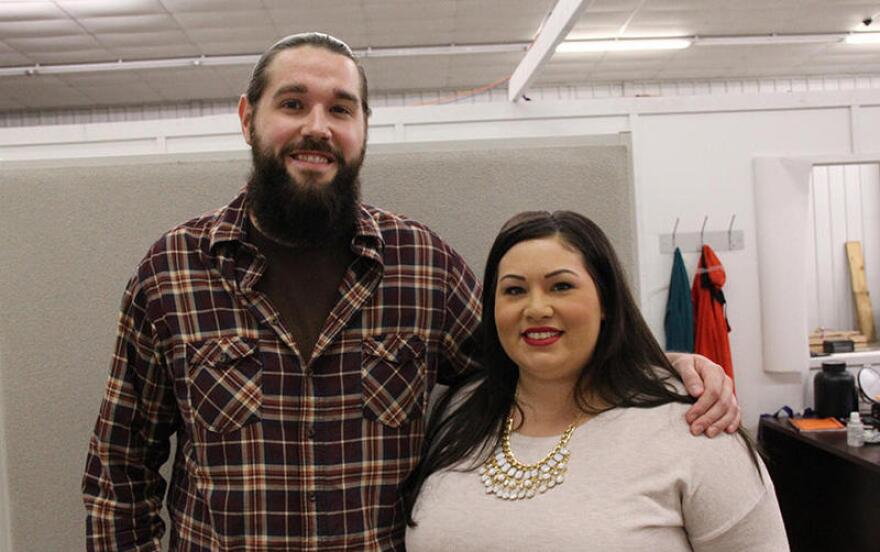In a 15-0 vote during a regularly scheduled national council meeting on Thursday evening, Muscogee (Creek) Nation restored free press protections for Mvskoke Media, the Tribe's news and information outlet.
Mvskoke Media gained free press protections in 2015, but lost them in 2018. Principal Chief David Hill, who sponsored free press legislation when he was on the council, signed the bill immediately after Thursday’s vote.
Rebecca Landsberry, the executive director of the Native American Journalist Association, says funding for the news organization is key. Mvskoke Media is one of five Tribal news outlets nationwide that have free press protections.
"Mvskoke Media is one of a few that have a mechanism for guaranteed funding now, so that's really huge," said Landsberry.
The only thing not gained from this bill is a Mvskoke Media representative on the editorial board. The editorial board, as it was initally proposed in the bill, allowed for one member from the Principal Chief's office, one selection from the National Council and the third selection was to be decided upon by Mvskoke Media, which means that staff would have a say in who represents them. That changed, however, when the bill was on the floor. Now, the Principal Chief's office and the National Council will decide who the third member of the editorial board is.
To be eligible to serve on the board, members must have some experience and background in journalism, Tribal law and must agree to adhere to professional and ethical standards published by the Society of Professional Journalists.
Even with the amended board selection process, Landsberry still feels the bill is strong.
"I still think the bill can be a really effective tool for allowing a free flow of information and allowing Mvskoke Media to be able to report on the government the way that they need to without fear," Landsberry said.
Sterling Cosper says mandated funding is a big deal. He's Mvskoke Media's former editor who left in 2018 after they stripped the news organization of its free press freedom.
"That was a concern of ours always," said Cosper. "After the (2015) bill was passed, we have this protection, but we don't have any guarantee that our budget's going to pass every year."
Now, they will have that guarantee.
The new bill will also clarify the roles of the managing editor and the manager. There will be boundaries between the two. The director can now focus on the business side of things, like talking with human resources, the National Council or the Attorney General’s office, and the managing editor will now focus on the news the outlet puts out.
Cosper says those boundaries are key.
"So ideally, I don't have to turn around after doing business with those people and then start doing interviews with them," said Cosper.
The Native American Journalist Association launched the Red Press Initiative in 2018 to look at the importance of a free press at Tribal media outlets.
"NAJA believes that the accurate and contextual reporting about Indigenous people and communities is necessary to overcome the biases and stereotypes commonly portrayed in popular media," reads a statement on their website.
Cosper said reporting on their government with press protections is needed in this moment more than ever before.
"What's really at stake for me is the public trust," he said in an interview before the vote.
After the Carpenter v. Murphy case was decided in the 10th Circuit Court of Appeals, Cosper says the staff was gearing up their coverage when the case went to the U.S. Supreme Court. He knew that Mvskoke Media would be in a stronger position to explain the decision, its ramifications and what it would mean for citizens than many other non-Tribal news outlets. They have access to Tribal leaders in a way many mainstream and Tribal news outlets do not.
"You know, we talked about these agreements, post McGirt. I've seen a lot of stuff on social media that citizens really feel like they want to be looped in," said Cosper.
He says that citizens have a lot of questions about transparency from their Tribal government and they need an independent voice like Mvskoke Media to report on it.
Jason Salsman, who also worked for Mvskoke Media before it lost its free press protections in 2018, now works for the Principal Chief's office as the press secretary. Salsman says the passage of free press puts Mvskoke Media on the right side of history.
"In 2015, the Nation was seen as a shining light becoming just the 4th Tribe nationally to pass free press legislation," said Salsman over text message after the bill passed Thursday night.
He was disappointed when it was repealed in 2018. He says Hill, who voted for free press in 2018 and against its repeal, is "very pleased to see it passed."
"Now the real work begins," said Landsberry.







